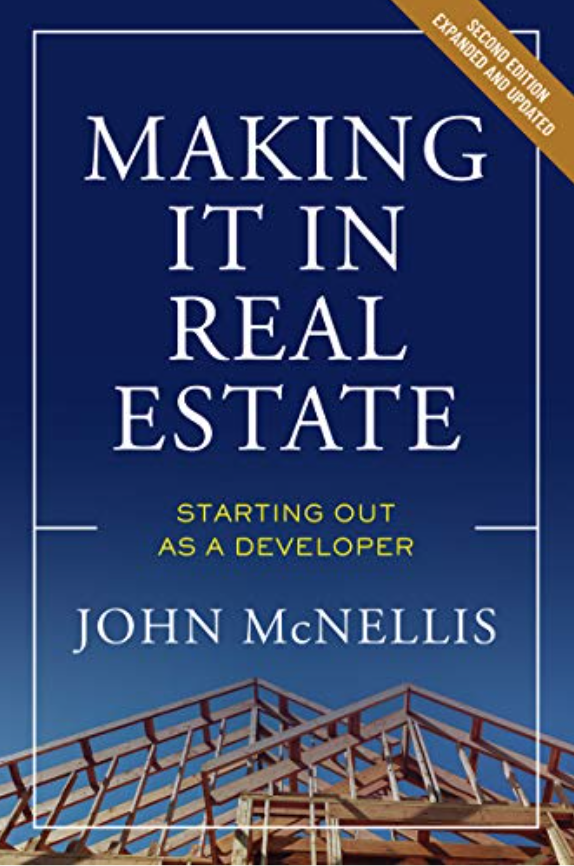Bankers like exclusivity, but developers should be less enamored.
In an issue devoted to infrastructure—yes, sadly, it’s all falling apart and, yes, we all need to do something about it—it may seem off-menu to devote a column to bankers. But human infrastructure is every bit as important as asphalt and concrete.
A picture of a smiling developer and a happy banker shaking hands could illustrate Wikipedia’s explanation of “symbiotic relationship.” Developers need to borrow and bankers most assuredly need to lend, despite their occasional issues with regulators. We could almost end this column right there, but a few nuances in this often-happy relationship are worth touching upon.
Unless the announcement of your birth appeared in The New York Times, you have to get started somewhere and, for successful deals at least, a banker’s money is always the cheapest in town—far cheaper, no matter the interest rate, than giving away half the deal. Yes, rookie developers must part with nearly everything regardless. But with a bit of luck, they may over time be able to decide for themselves how much to rely on banks versus equity partners.
Veteran developers usually argue in favor of partners, noting that you have to personally guarantee bank debt whereas you promise your equity partners nada (at least in the fine print). While this may be anathema to many, your correspondent believes that if you feel a moral obligation—forget the partnership agreement’s absolution—to repay your investors, you’re far better off guaranteeing bank debt where the ethical and legal obligations are identical and you get to keep all the profits. Also, just like rock climbing a hundred feet up on a vertical face, personal guarantees have the side benefit of focusing your attention on the moment at hand—in this case, your deal’s underwriting. Sooner or later, we all lose money, but perhaps a bit less often when it is our own money.
So, a banker is a successful developer’s best friend. But … the first time you try to borrow more than a cup of sugar, your banker will want a committed, monogamous relationship. He—or she—will want all of your business. She will shake hands and promise she will take care of all your needs; she will lend you every dollar you will ever need. And she will mean it. Your BFF with financial benefits. Here’s the problem—you can’t shake hands with a corporation.
Despite the best intentions in the world, your banker is only as good as the last loan she committed to you. While she may truly become a close friend over time, likely as not, she will quit, retire, be fishing or in the hospital the week you absolutely need a loan commitment. Or, her bank will be merged out of existence (this has happened to us three times), taken over by the Feds or simply stop making real estate loans. The benefits then of an exclusive banking relationship could be the less pleasant sort of screwing.
The solution? You need an open relationship with three bankers at three different banks. That way, the lights are always on somewhere. Will this be without its own sturm und drang? Of course not—for the same reasons an open relationship has never worked for any couple since Adam and Eve; your bankers will hate it. But they will begrudgingly accept it once they understand and accept your legitimate need for a financial back-up plan.
Your role then is to nurture that understanding and acceptance.
Bankers are sensitive souls; they don’t get out of their offices all that often; their joys are in the neat, the orderly and the calm. Bankers are a lot like accountants, only with personality. They love nothing better than sipping herbal tea while poring over your spreadsheets, provided of course your numbers are handsomely positive. They savor reports showing solid leasing and construction progress; they embrace financial statements with even the merest hint of liquidity.
While easily pleased, bankers are not perfect; they can react badly when startled. The casual mention of a second lien holder’s pending foreclosure—especially one known for months—can be cause for surprising rancor. They can be oddly prickly about not having their calls returned (they have the money, after all) or about receiving a developer’s reply at 6 p.m. on Christmas Eve. And bankers may be at their least charming when confronted with bold-faced lies, displaying far less in the way of patience than, say, a mental-health worker. Somewhere along the line, bankers lost their childlike joy in surprises.
Bankers are all too aware of their senseless, pathological aversion to real risk, but, knowing how uncool it is to be wimpy, they hate being reminded of it. They especially hate it when a developer tosses aside their concerns with a chuckling dismissal: “Toxics? No problem, dude. That town already glows in the dark; no one will ever notice our little spill.”
The clever developer will make allowances for these personality quirks when maintaining her connection with her banker. But with a little care (underpromising is a time-honored strategy), and your new best friend, your banker, will be your pal forever, or at least until he retires, gets transferred or goes fishing.


